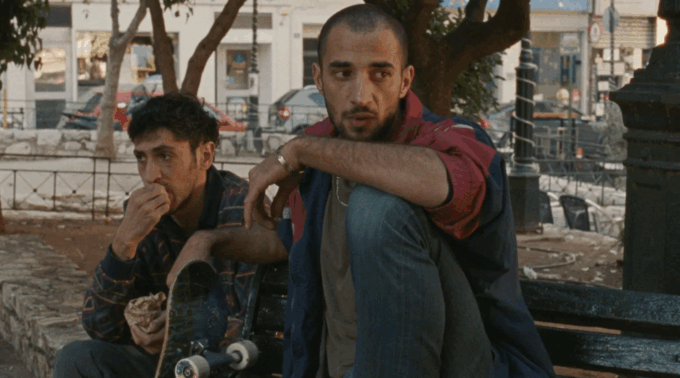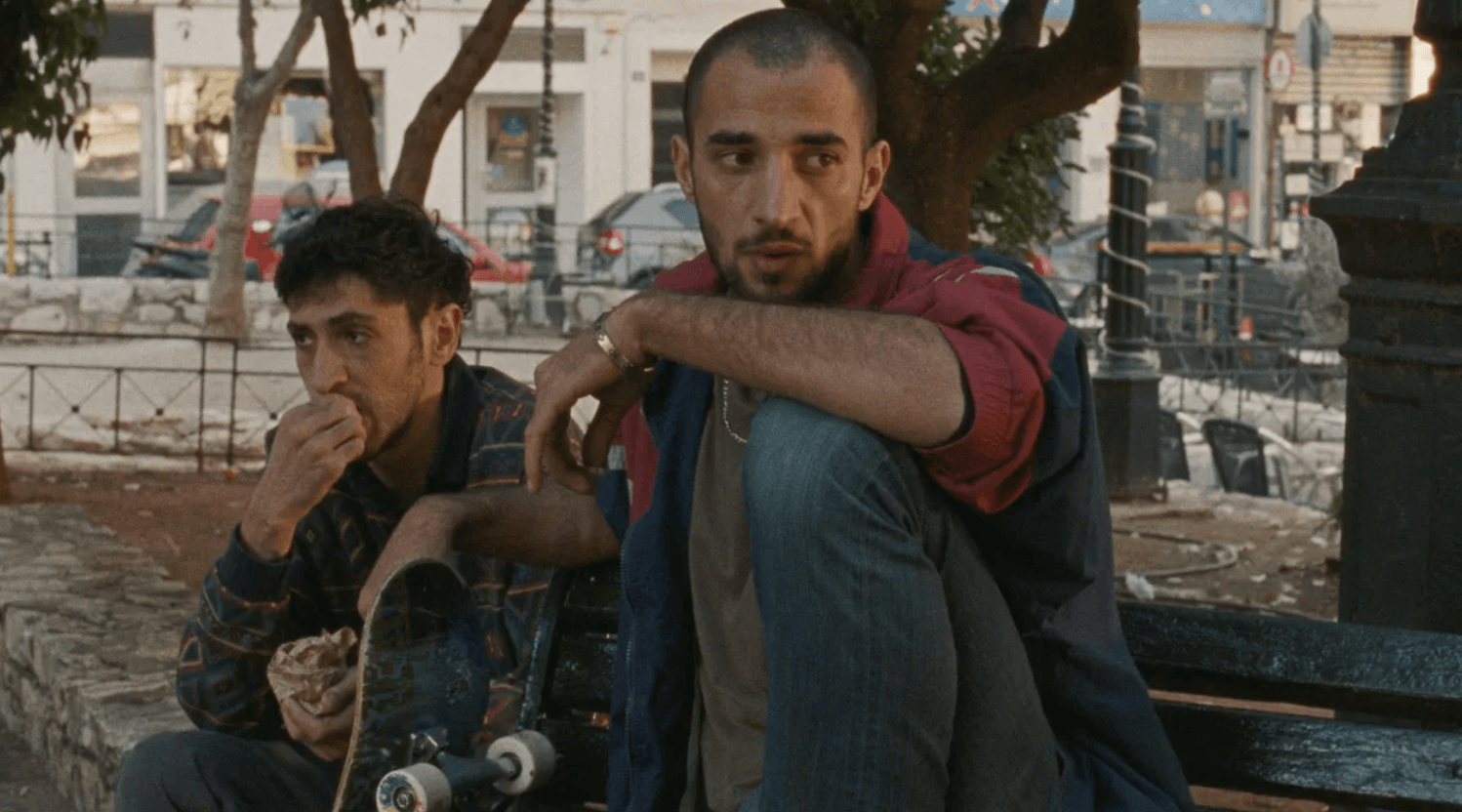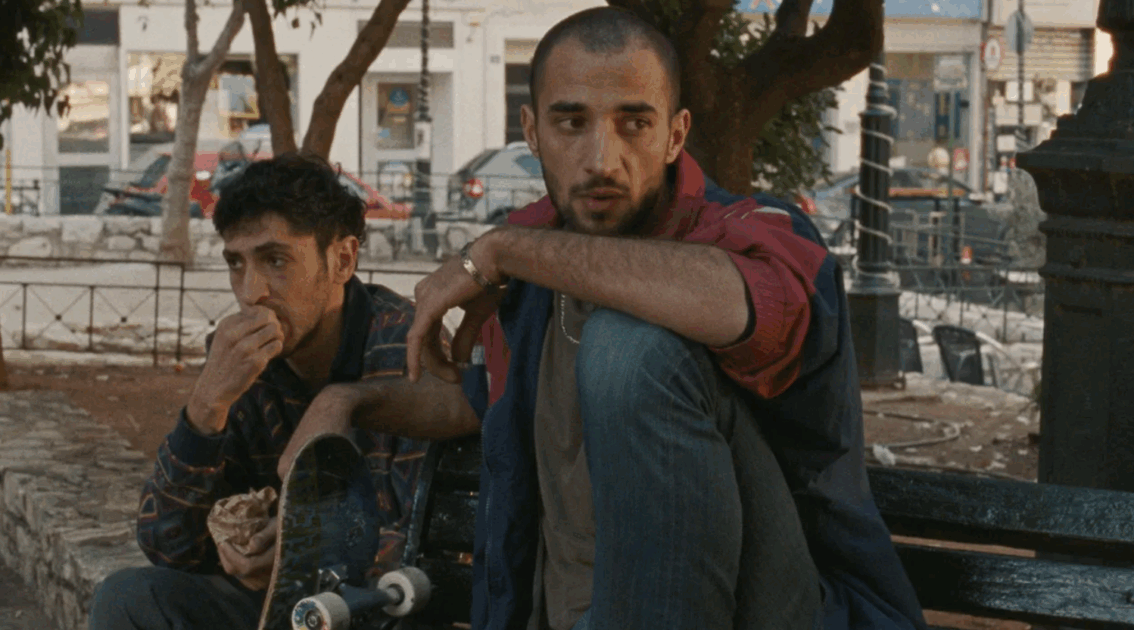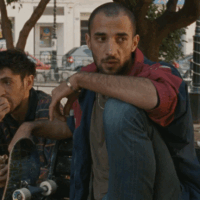
‘To a Land Unknown’ Cannes Film Festival.
Mahdi Fleifel’s “To a Land Unknown” opens with a quote by the great Palestinian intellectual Edward Said, reflecting on the fate of his people to be scattered in different lands since their home is denied. Such is also the plight of so many immigrants, particularly refugees, who find themselves in a condition of being stateless. Nationalism suddenly seems trite when what matters is simply finding a stable part of the world to exist. A film like this powerful work gains even more urgency now in the wake of the ongoing genocide in Gaza and the need to present the Palestinian experience in its human dimensions. Fleifel’s film fulfills that need while being piercingly universal. Art is now at the forefront of telling the Palestinian story when students are being disappeared or expelled for protesting the genocide and occupation. Politicians cower or still have the gall to take a photo with Benjamin Netanyahu when he visits the imperial court in Washington.
The story Fleifel tells focuses on Chatila (Mahmoud Bakri) and Reda (Aram Sabbah), two Palestinian cousins trying to make their way to Germany. For now they are stuck in Athens, having adapted well enough to life in the Greek capital’s grittier corners. Surviving means purse-snatching, stealing goods to sell to people they know and dreaming of the day Chatila will open a restaurant in Berlin to run with his wife, who lives with their child in a camp in Lebanon. They soon come across Malik (Mohammad Alsurafa), a kid from Gaza trying to get to his aunt in Italy. The smuggler in charge of getting him there simply dumped Malik in Greece. Chatila sees a chance to help the boy and claim the smuggler’s fee for Reda and himself.
What Fleifel has achieved with “To a Land Unknown” is one of those enveloping cinematic experiences that feel so real as to transcend the idea that it is fiction. There’s a definite creative strain here that can be traced back to Italian neorealism and films like “The Bicycle Thieves” or “Umberto D.” Chatila and Reda are not saintly immigrant stereotypes but two flesh and blood individuals impacted by the unforgiving nature of the streets. Mahdi Fleifel is a Palestinian-Danish documentarian, so his prime focus is capturing these lives with a striking realism. Reda has a drug problem and is prone to losing the money Chatila gathers to buy their passage to Western Europe. He isn’t beyond prostituting himself to local men at a park to recover the money. Chatila misses his wife and child, yet isn’t beyond seducing a lonely Greek woman, Tatiana (Angeliki Papoulia) to convince her to go along with the plan for getting Malik to Italy.
Such details make the film truly, achingly human. Each character surrounding Chatila and Reda is vivid, carrying their culture like a mark while dreaming of getting to some new place they only know through promises. In the same way Latin American migrants see the U.S. as a bountiful destination, Chatila assures Reda that Germany will give them automatic stability. The Greeks are too similar to Arabs in his view. Disoriented by displacement, the refugee can only dream of a better horizon. Reda sleeps half naked and we see a tattoo of Palestine on his torso. Culture is something we carry with us wherever we go. Palestinian culture in particular is facing destruction at the moment, not only in Gaza but in the entire occupied territories. Another Palestinian immigrant and junkie, Abu Love (Mouataz Alshaltouh) recites poetry and memorizes the greats like Mahmoud Darwish as his own eloquent, personal flag to make sense of life. There can also be a figure like Marwan (Munther Reyahneh), a bull-faced hustler who cares more about the cash he can collect to facilitate an exit to Italy or forge documents.
In the hands of a skilled artist, a story like this is fueled by poetic allegories and becomes gripping without resorting to cliché thriller devices. Chatila and Reda’s plan does not go as envisioned, placing them in a dire situation. They make a wild decision that could easily get them killed, directed with a tragi-comic spirit. When Reda steals a pair of shoes and later tells Malik not to become a thief, the writing becomes wonderfully empathetic. A harsh judgement would be hypocritical. These are human beings driven by desires, dreams and frustrations who have also become victims of history. Like their fellow refugees from countries like Syria, they did not choose to see their homelands scorched by injustice. Never do Chatila and Reda get into long dissertations on Israel or U.S. foreign policy, because the intimate world of their lives boils down to just wanting the freedom to exist.
For every dark moment in history art can become a slight form of redemption. As the war in Gaza and the issue of Palestine divide the world and inspire horror and debate, Palestinian stories are gaining more traction onscreen. “To a Land Unknown” joins recent works like the Oscar-winning “No Other Land” as potent revelations for the outside world on the Palestinian experience. It is being distributed by Watermelon Pictures, a company founded precisely to provide representation in a landscape sorely lacking in these kinds of stories. Fascism, Islamophobia and other toxic strains infect public discourse, amplified by the internet. It is vital a film like this get made. The ending is uncompromising, as it must be. It demands we be moved by the fate of Chatila and Reda, because by empathizing with them, we as viewers are also participating in a human act of resistance.
“To a Land Unknown” releases July 11 in New York and Los Angeles and expands July 18 in select theaters.
The post ‘To a Land Unknown’: The Palestinian Diaspora Experience Told with Grit and Shattering Humanity appeared first on CounterPunch.org.



